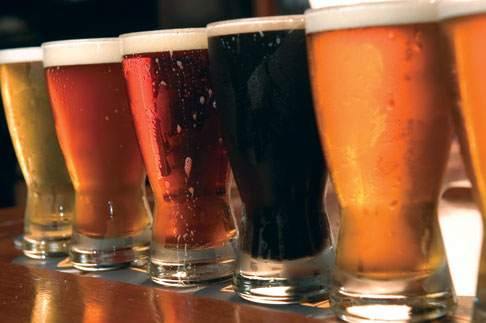A team of Italian researchers has concluded that a beer (or two) a day can help keep cardiovascular disease at bay.
The happy (hoppy?) news is the result of a study from Research Laboratories at the Fondazione di Ricerca e Cura “Giovanni Paolo II”, in Campobasso, Italy, which analyzed the potential health benefits of both wine and beer.

The researchers – who determined that moderate regular drinking yields cardiovascular health benefits – employed a statistical approach of meta-analysis.
Meaning, they combined multiple scientific studies to form a conclusion.
As expected, the research confirmed what is already known about wine: moderate consumption can lower the risk of cardiovascular disease – up to 31% compared to nondrinkers.
But the study also provided new data about moderate beer consumption.
“In our research we considered wine and beer separately: you first observe a reduction in cardiovascular risk with low to moderate drinking. Then, with an increasing consumption, you can see that the advantage disappears, until the risk gets higher,” explained Simona Costanzo, co-author of a paper detailing the study that was published in the European Journal of Epidemiology.
“The interesting part of our research is that, among the studies selected for this meta-analysis, there were 12 in which wine and beer consumption could be compared directly. Using these data we were able to observe that the risk curves for the two beverages are closely overlapping.”
However, Augusto Di Castelnuovo, head of the Statistic Unit of Research Laboratories, warned beer and wine drinkers against using the above-mentioned research as an excuse to engage in excessive “over medication” of either beverage.
“What we are talking about is moderate and regular drinking. I think we will never stress enough this concept. Wine or beer are part of a lifestyle. One glass can pair with healthy foods, eaten at proper time, maybe together with family of friends. There is no place for binge drinking or any other form of heavy consumption,” said Castelnuovo.
“[In addition], the data reported in our meta-analysis cannot be extrapolated to everybody. In young women still in their fertile age, as an example, alcohol can slightly raise the risk for some kind of cancer. This could counterbalance the positive effect on cardiovascular disease and reduce the overall benefit of alcoholic beverages on health.”






